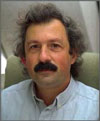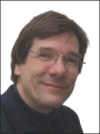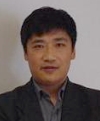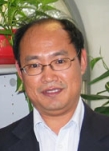Swiss Federal Institute of Technology Zurich, Switzerland
 Lothar Thiele was born in Aachen, Germany on April 7, 1957. He received his Diplom-Ingenieur and Dr.-Ing. degrees in Electrical Engineering from the Technical University of Munich in 1981 and 1985 respectively. After completing his Habilitation thesis from the Institute of Network Theory and Circuit Design of the Technical University Munich, he joined the Information Systems Laboratory at Stanford University in 1987. Lothar Thiele was born in Aachen, Germany on April 7, 1957. He received his Diplom-Ingenieur and Dr.-Ing. degrees in Electrical Engineering from the Technical University of Munich in 1981 and 1985 respectively. After completing his Habilitation thesis from the Institute of Network Theory and Circuit Design of the Technical University Munich, he joined the Information Systems Laboratory at Stanford University in 1987.
 In 1988, he took up the chair of microelectronics at the Faculty of Engineering, University of Saarland, Saarbrucken, Germany. He joined ETH Zurich, Switzerland, as a full Professor of Computer Engineering, in 1994. He is leading the Computer Engineering and Networks Laboratory of ETH Zurich. In 1988, he took up the chair of microelectronics at the Faculty of Engineering, University of Saarland, Saarbrucken, Germany. He joined ETH Zurich, Switzerland, as a full Professor of Computer Engineering, in 1994. He is leading the Computer Engineering and Networks Laboratory of ETH Zurich.
 His research interests include models, methods and software tools for the design of embedded systems, embedded software and bioinspired optimization techniques. His research interests include models, methods and software tools for the design of embedded systems, embedded software and bioinspired optimization techniques.
 In 1986 he received the "Dissertation Award" of the Technical University of Munich, in 1987, the "Outstanding Young Author Award" of the IEEE Circuits and Systems Society, in 1988, the Browder J. Thompson Memorial Award of the IEEE, and in 2000-2001, the "IBM Faculty Partnership Award". In 2004, he joined the German Academy of Natural Scientists Leopoldina. In 2005, he was the recipient of the Honorary Blaise Pascal Chair of University Leiden, The Netherlands. In 1986 he received the "Dissertation Award" of the Technical University of Munich, in 1987, the "Outstanding Young Author Award" of the IEEE Circuits and Systems Society, in 1988, the Browder J. Thompson Memorial Award of the IEEE, and in 2000-2001, the "IBM Faculty Partnership Award". In 2004, he joined the German Academy of Natural Scientists Leopoldina. In 2005, he was the recipient of the Honorary Blaise Pascal Chair of University Leiden, The Netherlands.
|
|







